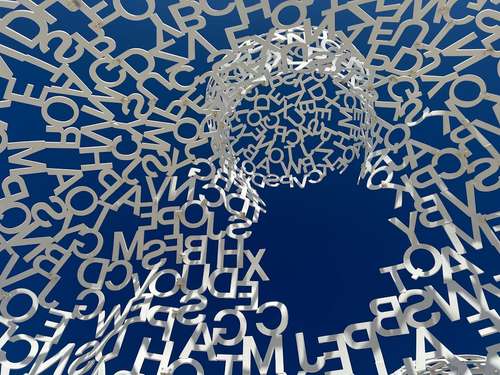Having 2 Psychiatric Disorders Doubles Dementia Risk
Sometimes, life can throw multiple challenges at us all at once, and when it comes to mental health, the stress can be especially heavy. Recent research suggests that having two psychiatric disorders might double the risk of developing dementia later in life. This is not just a medical statistic; it's a personal wake-up call for many of us who have struggled with mental illness or known someone who has.
Imagine juggling two complex puzzles at once. Each puzzle is challenging on its own, but when you try to solve them simultaneously, the risk of errors increases dramatically. In the realm of mental health, dealing with dual psychiatric conditions doesn't just double the struggle—it can literally double the risk of cognitive decline and dementia development. And that’s something worthy of our attention.
There’s no need to panic, but it is important to be informed. When we understand the link between psychiatric comorbidity and dementia risk, we get a clearer picture of why taking care of our mental health is so essential. We need to grasp that our brain health can be affected in subtle ways when multiple factors come into play.
Understanding Dual Diagnosis and Its Impact
Let’s dive into understanding dual diagnosis and how it can affect our brain health. Dual diagnosis, where an individual experience more than one psychiatric disorder, has been increasingly linked to a higher dementia risk. Studies suggest that when someone has two or more mental disorders, the brain may face elevated strain, potentially accelerating cognitive decline.
Recent neurological studies have highlighted that psychiatric disorders like depression, anxiety, and bipolar disorder are not isolated challenges. When they coexist, the complexity of treatment and the stress on the brain can lead to changes in the brain’s structure and function, increasing dementia risk. Think of it as overloading a computer with too many programs running at one time—the system can become sluggish and eventually crash.
This concept isn’t just confined to clinical cases. It’s something many of us might relate to on some level. For example, managing stress and mild anxiety is common, but for someone battling two serious psychiatric disorders, every day presents a genuine challenge. Such mental health struggles can pave the way for other severe issues, including cognitive health problems and dementia development.
The Science Behind the Findings
The science is steadily unfolding, and the connection between psychiatric disorders and dementia risk is backed by substantial health research. In a research study that included more than 5,000 adults, individuals with dual psychiatric conditions experienced double the chances of developing dementia compared to those diagnosed with a single condition. This research acts as a critical heads-up for anyone dealing with mental disorders.
Investigators in the study observed that the cumulative effects of mental illnesses do more than add up—they multiply the harm. The brain, when confronted with repeated stress from mental illness, may be more vulnerable to neurological damage over time. As one researcher mentioned in a recent health symposium, the link between psychiatric comorbidity and cognitive decline is a clear red flag for dementia prevention efforts.
However, it’s important to note that while these findings might sound alarming, they open the door to better understanding and management. With vigilant monitoring and comprehensive treatment plans, we could potentially ward off some of these risks. After all, knowing your risk factors is the first step towards proactive health care.
Personal Stories and Real-World Implications
Have you ever felt like you were battling a storm on your own? That’s what many dealing with dual psychiatric disorders experience every day. The struggle is real, and these studies bring home the point that our mental health needs constant attention and care. Many individuals have shared their experiences with managing mental illness and the challenges that come with multiple diagnoses.
Consider the experience of a friend who once mentioned how coping with depression and an anxiety disorder at the same time felt like an endless tug-of-war. These personal stories aren’t just anecdotes—they highlight genuine challenges and remind us why it’s so vital to focus on brain disorders with a comprehensive approach. Seeing these real-world examples can inspire better dementia prevention strategies.
The battle against mental illness is often a personal one, and merging clinical insight with lived experiences adds an essential dimension to health research. When we look at psychiatric comorbidity through both scientific studies and personal narratives, we gain a more holistic understanding of the risk factors for dementia development. This balanced perspective helps in making informed decisions about treatment modalities and lifestyle adjustments, ultimately aiming for cognitive health preservation.
Prevention and Management Strategies
Prevention is always better than cure, right? Especially when it comes to managing mental health and reducing dementia risk. It's not enough to treat psychiatric disorders independently; our approach needs to encompass an integrated care model that addresses multiple issues simultaneously.
Combating these risks starts with early detection and intervention. Regular check-ups, thorough mental health assessments, and open conversations between patients and providers are essential. When medical professionals identify dual diagnoses early, targeted therapies and lifestyle adjustments can help keep dementia risk at bay. Additionally, lifestyle choices such as maintaining a balanced diet, engaging in regular physical activity, and practicing mindfulness can make a big difference in supporting brain health.
The idea here is to recognize that mental illness treatment goes beyond just medications. Integrative approaches that combine psychotherapy, medication, and behavioral therapies are proving to be effective, highlighting that comprehensive care is essential for not only managing psychiatric disorders but also for dementia prevention. It’s like treating your body as a whole rather than fighting battles on separate fronts.
It’s important to share practical steps that work. For instance, many people find that joining support groups and maintaining an active social life contribute significantly to improved cognitive health. When we take care of our mental health, we're also taking care of our future cognitive well-being, lowering the chances for further complications such as cognitive decline, and providing a blueprint for brain health that can sustain us in the long run.
The Road Ahead: Research and Hope
Looking to the future, the intersection of mental health and dementia risk is an area full of questions waiting for answers. Researchers are now asking many questions, like, how do these psychiatric disorders interact on a cellular level to influence dementia development? While the answers are still emerging, the current evidence paves the way for promising breakthroughs. These findings are crucial for both early intervention strategies and the design of more effective treatments for brain disorders.
The road ahead may seem uncertain, but it's also full of hope. Health research has made tremendous strides in understanding mental illness and cognitive decline, and these advancements can lead to better dementia prevention techniques. Progressive neurological studies associated with psychiatric comorbidities are paving the way for integrated treatment protocols that address both mental health conditions and the risk for dementia head-on.
As we continue to explore these relationships, the importance of self-care and mental health awareness grows louder. Staying informed, seeking help when needed, and engaging in activities that promote cognitive health are all part of a proactive strategy. And remember, every small step toward well-being is a giant leap for your long-term brain health.
In a world where news like this might seem overwhelming, it's important to take comfort in the fact that knowledge empowers us. Understanding that having two psychiatric disorders doubles dementia risk is not a verdict but a call to action for better mental health management and brain care. Each of us can contribute to a healthier future with proactive measures and comprehensive treatment approaches.




